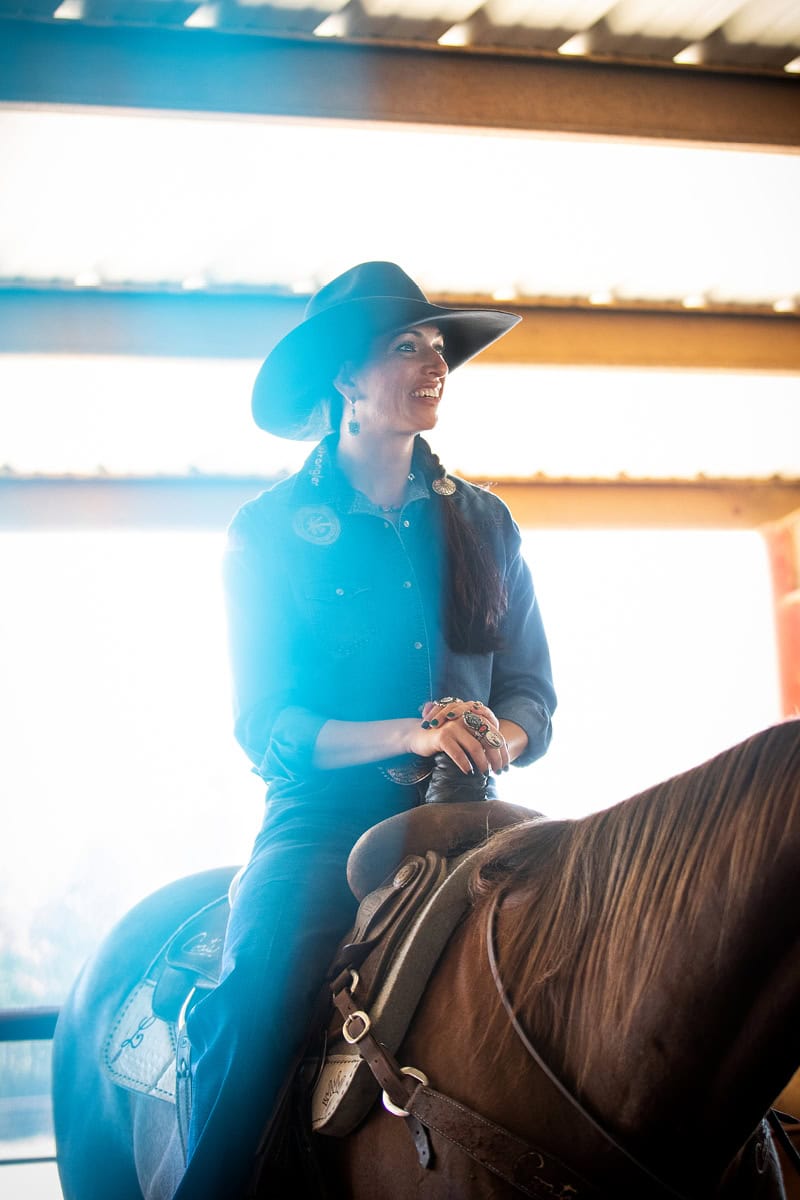Buffalo Mountain looms large in the childhood of Chahta ohoyo Lacee Lewis. Huddleston Ranch, where Lacee grew up, lies at the base of the mountain just a few miles outside of Talihina.
Owned and run for over 40 years by her grandfather, Don Huddleston, the sprawling homestead housed many of Lacee’s relatives, which contributed to a tightly knit family compound where the children could roam free in the pastures and on the mountain. As a girl, Lacee took any chance she got to be out of the house, exploring the mountain trails and enjoying the great outdoors.
“It was the best way to grow up, I think,” said Lacee. “I was always one with nature, and I loved my animals. It was just awesome.”
Grandfather Don’s influence in young Lacee’s life is unmistakable. As an eight-time NFR qualifier, Don lived the rodeo life, and he taught her everything she knows about bulldogging and steer hazing. Cowboys from all over the Buffalo Valley area came to Huddleston Ranch to practice and participate in the family’s arena, so Lacee was able to form an extended family of sorts in the rodeo community, too.
When she was just eight years old, Lacee got her first horse, whom she named Wildfire. Her grandfather, Edgar Curnutt, taught her to care for horses and train them in a gentle way so they could build trust.
Eventually, Lacee felt the call of the arena, too. Although she played other sports in school, nothing held the allure of spending time with her horse and practicing her barrel racing and hazing skills. While she definitely preferred to be outside with the horses instead of inside the house, there were some things that were more important. Every Sunday was the same: church first, then lunch, then horses.
“I’d say, ‘Grandmomma, I need to saddle horses,’ and she’d say, ‘Nope, you’re going to church.’ And then, whenever we’d get done, she’d cook dinner, and I’d get to go ride and play,” Lacee recalls.
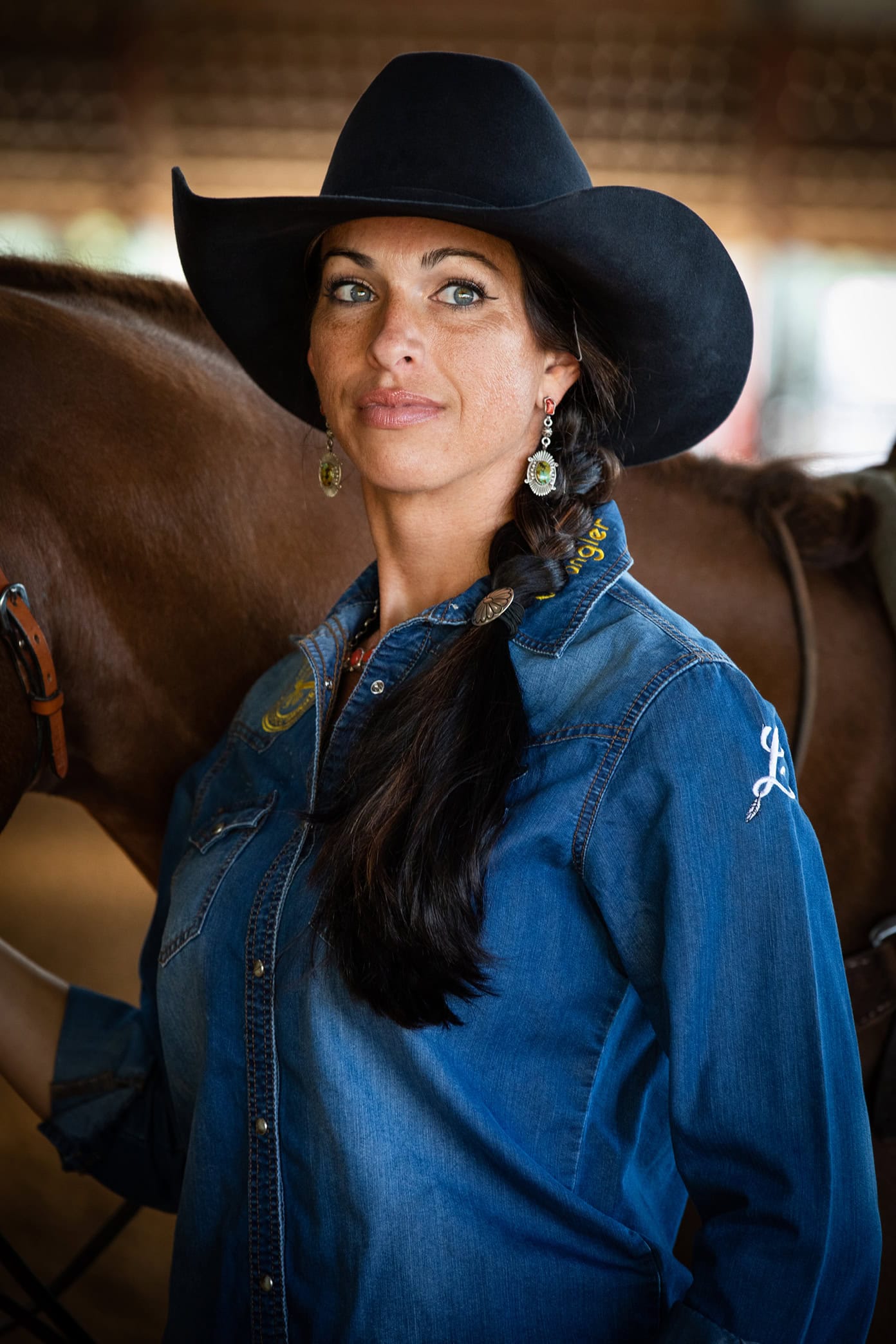
"It was the best way to grow up, I think," said Lacee. "I was always one with nature, and I loved my animals. It was just awesome."
The rough-and-tumble rodeo life is not for the faint of heart, and steer wrestling is no exception. This team sport, more commonly known as bulldogging, involves a hazer riding alongside a steer to keep it running straight, while the bulldogger on the other side drops from the horse and tackles the steer to the ground. According to the National Cowboy Museum in Oklahoma City, bulldogging is “a fast-paced, high-octane event that, if not done just right, can lead to a mouth full of dirt and a whole lot of hurt pride.”
“It’s a fun thing, honestly,” Lacee said. “You’re not just going to sit there and get your job done. You really have to be in tune with your horses and what the steer is fixing to do.”
Being a woman in steer hazing is not easy. It is typically a man’s sport, and in some cases, women weren’t, and still aren’t, really welcome in the arena. While Lacee had a long history of steer hazing, she still had to work hard for acceptance among her male peers. But rodeo is a “walk the walk, not talk the talk” sport, and Lacee showed everyone she was ready for anything a steer could throw at her.
“Acceptance. It was nice finally getting it and knowing it was because of my horses or my abilities, not because of my gender,” said Lacee.
According to Lacee, having the right horse is like finding your soulmate. It isn’t always easy to find one, but when you do, things just click.
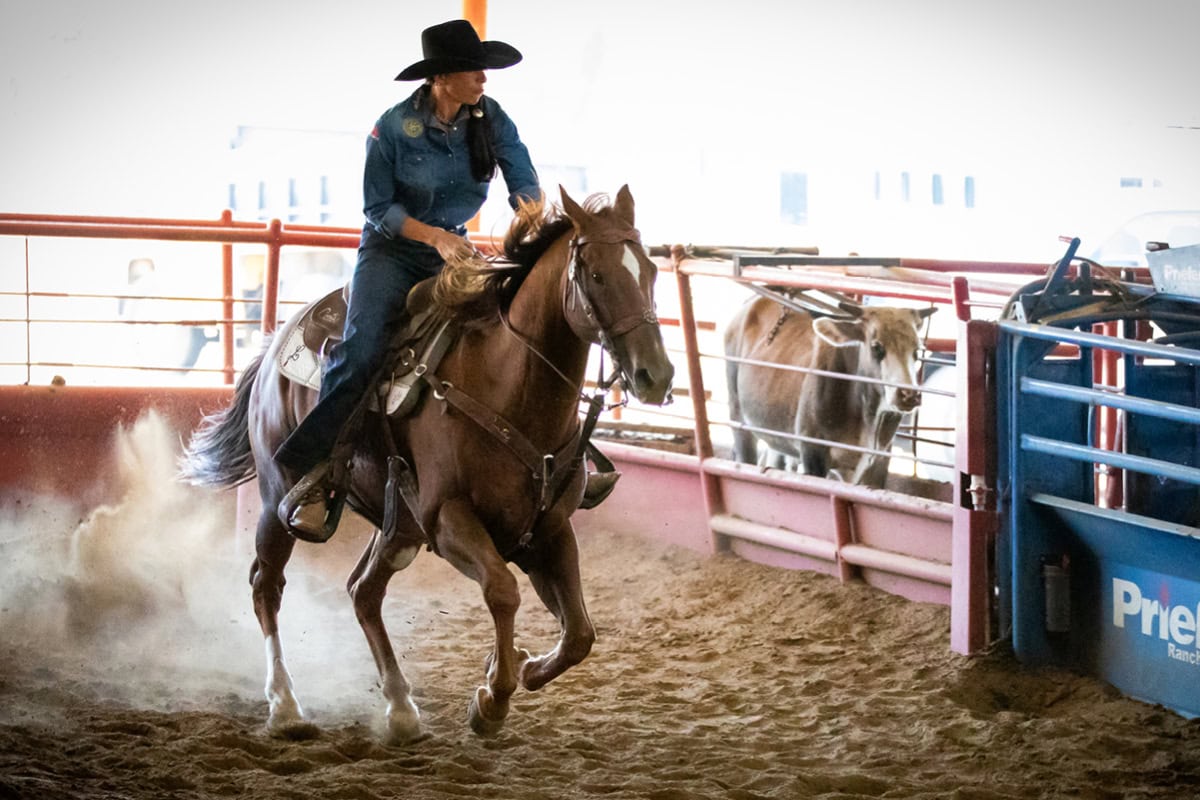
“You have to have the right horse. God has blessed me with two good horses in my life,” Lacee said.
Her stepfather, Kevin Burch, gave her a horse named Superbowl John that competed with Lacee through high school, college, and eventually when she turned pro.
“That horse taught me so much. I had him until he died. He was the one horse that wasn’t for sale,” she said. “He took care of me.” Superbowl John was 22 when he passed.
After Superbowl John, Lacee had a tough time finding another horse that she connected with as much. She needed one that was athletic, responsive, and fast enough to keep up with her bulldogger and the steer. Enter Superman. They’ve been the perfect team ever since.
Lacee and Superman were fortunate to haze for Lacee’s husband, Tom Lewis, for the last three years of his bulldogging career.
Tom told Rodeo News in 2018, “I never thought I would ever have a lady haze for me. She’s not just a cowgirl; she’s special. She’s the love of my life, we’re good friends, and we can talk.”
Tom and Lacee still train horses together after Tom’s retirement. “He’s still the one that pushes me. The older I get, I don’t mind just training and sitting at home, but he says, ‘No, this one’s got it, and you’re the only one that’s going to get it out of him.'” So, Lacee still saddles up and hazes for other bulldoggers when she needs to.
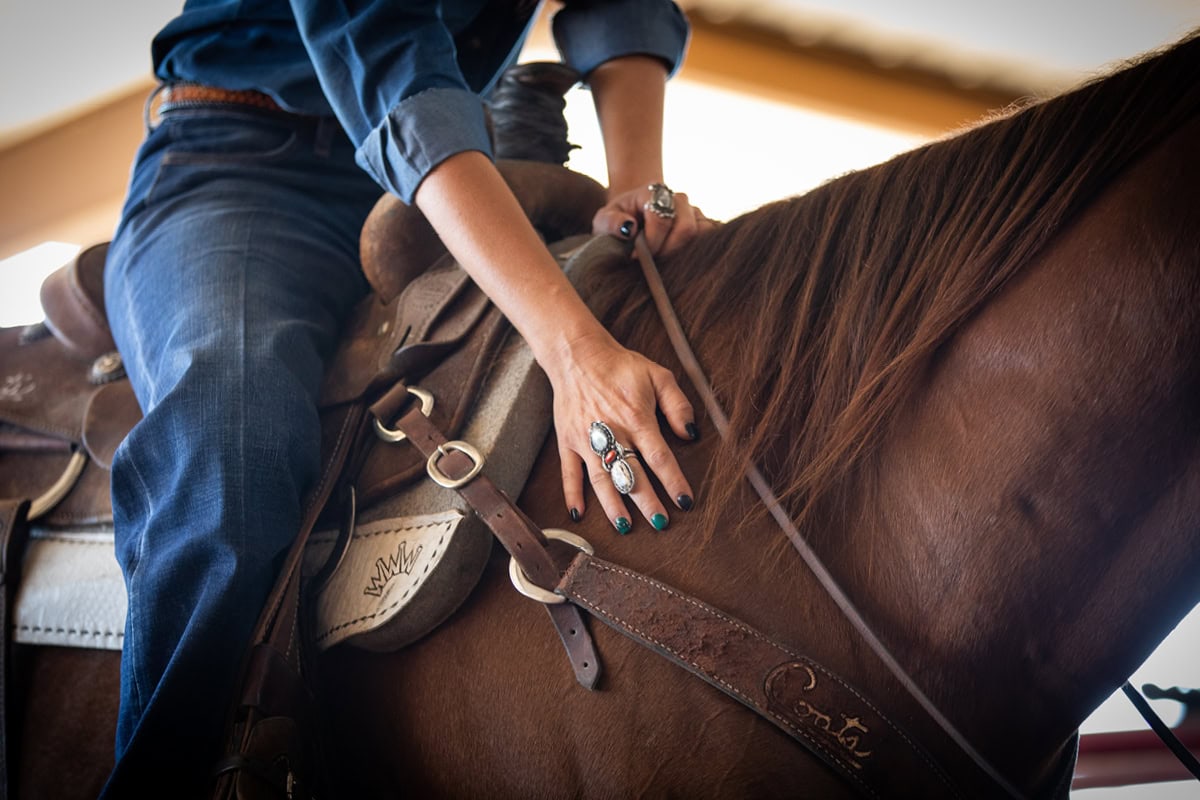
"Acceptance. It was nice finally getting it and knowing it was because of my horses or my abilities, not because of my gender," said Lacee.
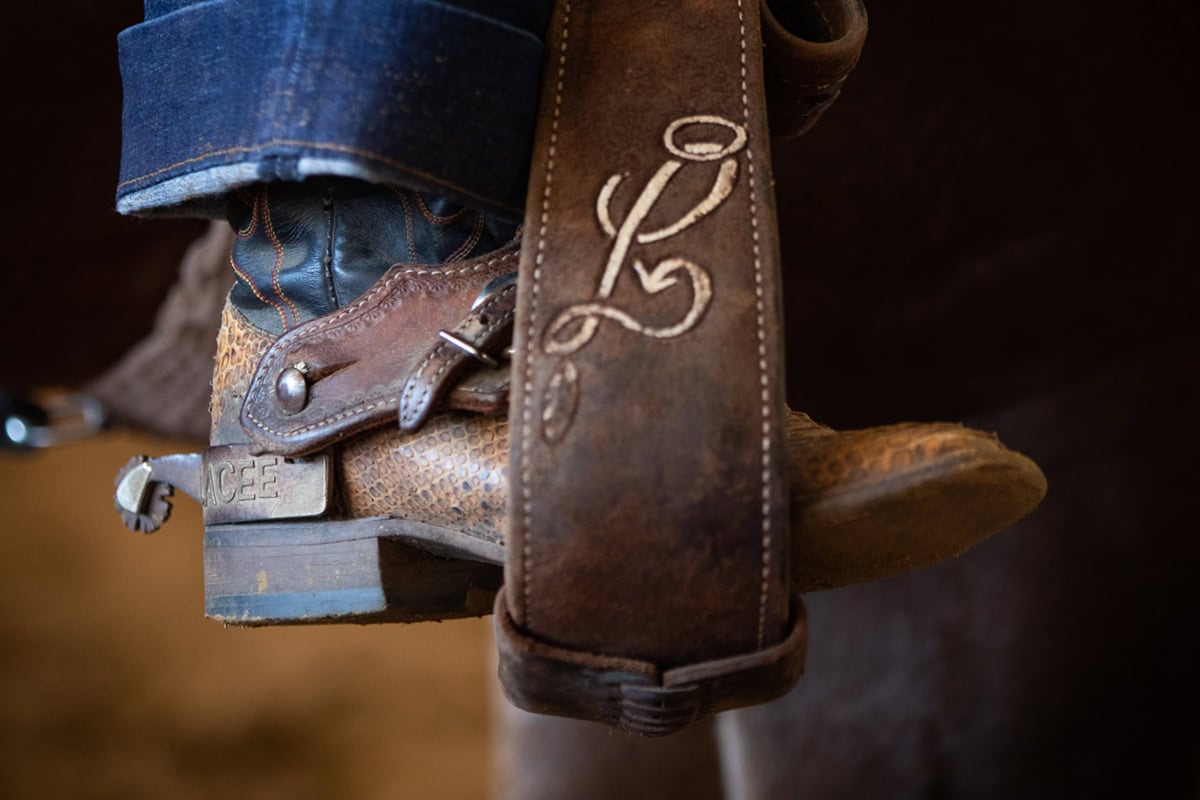
Looking to the future, Lacee, who once had dreams of being an elementary school teacher, says she wants to offer kids the kind of outdoor experiences she had growing up. Eventually, she wants to run a ranch where children can come ride horses, play outside, and learn to appreciate nature. It would also give the kids something constructive to do with their time.
“I know [rodeo] took me a lot of places, but it never took me to the drug house,” said Lacee. “You have something to look forward to, a bigger responsibility than just yourself.”
Lacee’s own son, Walker Don, grew up heeling and roping, but the “Friday Night Lights” called him to the gridiron. According to Lacee, he’s also a “heck of a fisherman” and competes on the bass fishing team. She still thinks there may be a little rodeo in him, though.
“We will see,” she said.
Being from a Choctaw family brings Lacee a lot of joy. Her grandmother was a full-blood Choctaw, and she learned a lot about the culture and traditions from her. Today, Lacee takes pride in the fact that her ancestors overcame so much to build a life in Oklahoma.
“I feel the heritage in my blood,” said Lacee. “I feel like it means more to me – the horses, the ground, the trees. The older I get, the more I love my Choctaw heritage.”
She also gives a lot of credit for her success to a broad family support system.
“My mom has always been my biggest fan, She used to help me drive, and I always knew I’d have to clean up sunflower seeds the next morning in my truck!” Lacee said with a laugh.
From her parents and grandparents, who encouraged her to follow her rodeo dreams to her aunt Twila who taught her so much about training horses, Lacee has been blessed to have such positive and powerful influences in her life.
Lacee’s father would love to see her work for the Choctaw Nation like her sisters. In fact, Lacee would like that, too.
“I hope it’s with horses and children,” she mentioned. “I want to help with their passions as I had so much help growing up and am still learning every day.”
Aside from her love for family, finding peace in the outdoors and appreciating the history and gifts of the land are some of the things Lacee values most in life. Her faith in God flows perfectly alongside her faith in her ancestors to point her in the right direction.
Lacee’s words of wisdom to other Choctaws are simple: “Just listen, and something will guide you.”
